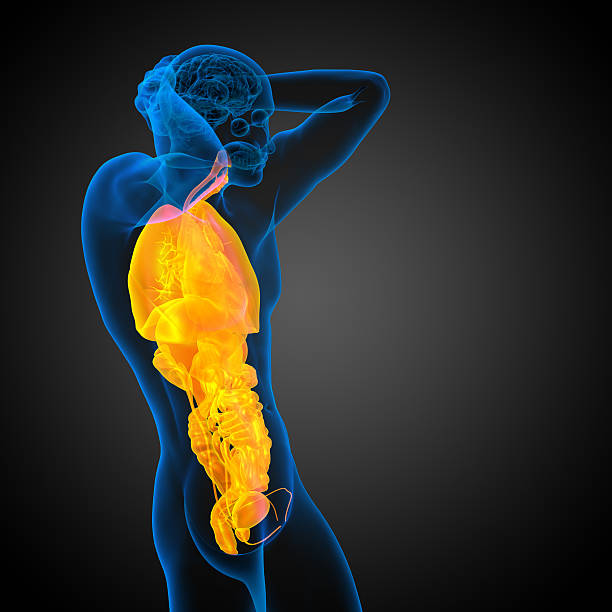Adrenal fatigue is a condition that occurs when the adrenal glands, two small glands located on top of the kidneys, become exhausted and unable to produce enough hormones to meet the body’s needs. This can lead to a wide range of symptoms, including fatigue, difficulty sleeping, low blood sugar, decreased immune function, and depression, among others. In this article, we’ll take a closer look at the symptoms of adrenal fatigue, what causes it, and the most effective treatments for this condition.
The adrenal glands are responsible for producing a variety of hormones, including cortisol, which helps regulate metabolism, and adrenaline, which helps to manage stress. When the adrenal glands become fatigued, they are unable to produce enough of these hormones, leading to a wide range of symptoms.
One of the most common symptoms of adrenal fatigue is fatigue, which can range from mild to severe. This fatigue can be persistent, lasting for weeks or even months, and can be debilitating, making it difficult to carry out daily activities. People with adrenal fatigue may also experience difficulty sleeping, either falling asleep or staying asleep, and may wake up feeling exhausted.
Another common symptom of adrenal fatigue is low blood sugar, which can cause feelings of lightheadedness, irritability, and weakness. This can be particularly problematic for those with adrenal fatigue, as the adrenal glands are responsible for regulating blood sugar levels. People with adrenal fatigue may also experience decreased immune function, which can make them more susceptible to infections and illnesses.
Adrenal fatigue can cause a wide range of symptoms, and many of these symptoms can be mistaken for other conditions. Some of the most common symptoms of adrenal fatigue include:
Fatigue and weakness: People with adrenal fatigue often feel exhausted, even after a full night’s sleep. They may feel weak, sluggish, and unable to get through the day without feeling drained.
Mood swings: Adrenal fatigue can cause mood swings, depression, and irritability. People with this condition may feel easily overwhelmed, anxious, or irritable.
Cravings for salty and sweet foods: People with adrenal fatigue often have cravings for salty and sweet foods. This is because the adrenal glands play a role in regulating blood sugar levels, and when they become fatigued, they are unable to do this effectively.
Low blood pressure: Adrenal fatigue can cause low blood pressure, which can cause dizziness and fainting.
Trouble sleeping: People with adrenal fatigue often have trouble sleeping. They may wake up frequently during the night or feel unrested after a full night’s sleep.
Low sex drive: Adrenal fatigue can cause a decrease in sex drive and a lack of energy.
Joint and muscle pain: Adrenal fatigue can cause joint and muscle pain, which can make it difficult to exercise or perform other physical activities.
Digestive problems: Adrenal fatigue can cause digestive problems, including constipation, diarrhea, and bloating.
Hormonal imbalances: Adrenal fatigue can cause hormonal imbalances, which can lead to menstrual irregularities, hot flashes, and other symptoms of menopause.
In addition to these physical symptoms, adrenal fatigue can also cause psychological symptoms, such as depression, anxiety, and mood swings. People with adrenal fatigue may also experience a decreased sex drive, and may have trouble concentrating or remembering things.
There are several factors that can contribute to adrenal fatigue, including chronic stress, illness, infection, and overuse of caffeine and sugar. Chronic stress can be particularly damaging to the adrenal glands, as it can cause the body to produce high levels of cortisol for prolonged periods of time, eventually leading to adrenal exhaustion.
Illness and infection can also contribute to adrenal fatigue, as the adrenal glands are responsible for producing hormones that help to regulate the immune system. Overuse of caffeine and sugar can also contribute to adrenal fatigue, as these substances can disrupt hormone levels and put additional stress on the adrenal glands.
The good news is that adrenal fatigue is treatable, and there are several effective treatments available to help people with this condition. Here are a few of the most effective treatments for adrenal fatigue:
Lifestyle Changes: Making certain lifestyle changes can help to alleviate the symptoms of adrenal fatigue. This may include reducing stress, getting enough sleep, eating a healthy diet, and avoiding caffeine and sugar.
Herbal Supplements: Certain herbal supplements, such as ashwagandha, ginseng, and licorice root, have been shown to be effective in treating adrenal fatigue. These supplements can help to regulate hormone levels and support adrenal function.
Vitamin and Mineral Supplements: Certain vitamins and minerals, such as vitamin C, B vitamins, and magnesium, are essential for adrenal health and can help to alleviate the symptoms of adrenal fatigue.
Hormone Therapy: In some cases, hormone therapy may be recommended to help treat adrenal fatigue. This may include cortisol replacement therapy or DHEA supplementation, which can help to regulate hormone levels and support adrenal function.
Acupuncture: Acupuncture has been shown to be effective in treating adrenal fatigue, as it can help to regulate hormone levels and reduce stress.

 Home
Home Health
Health Diet & Nutrition
Diet & Nutrition Living Well
Living Well More
More












